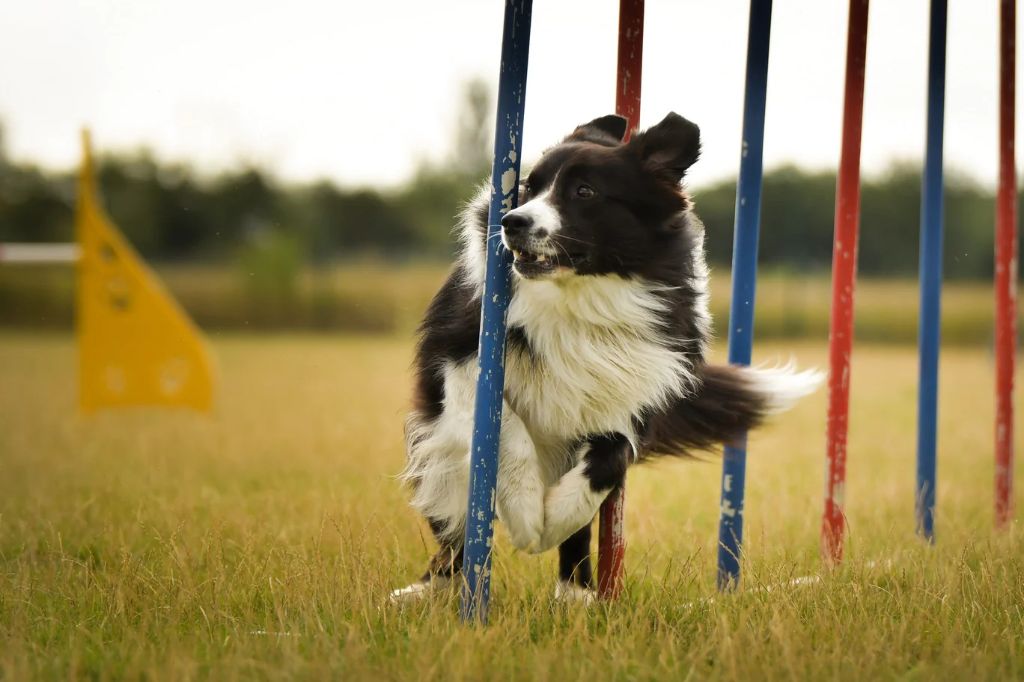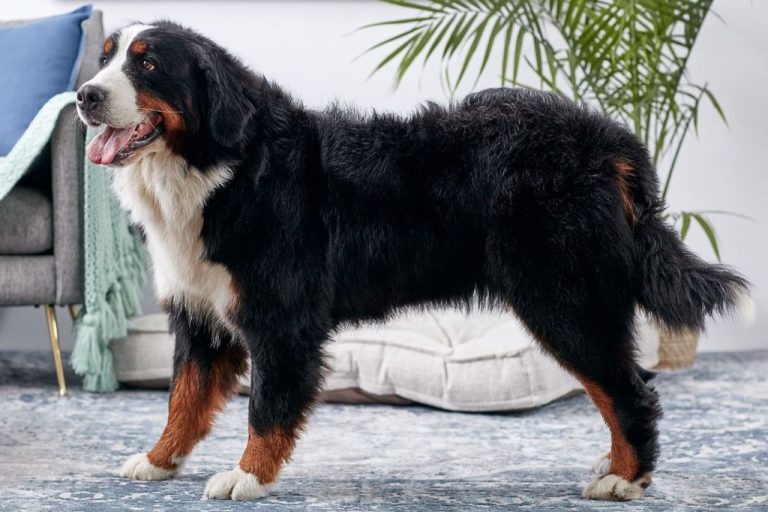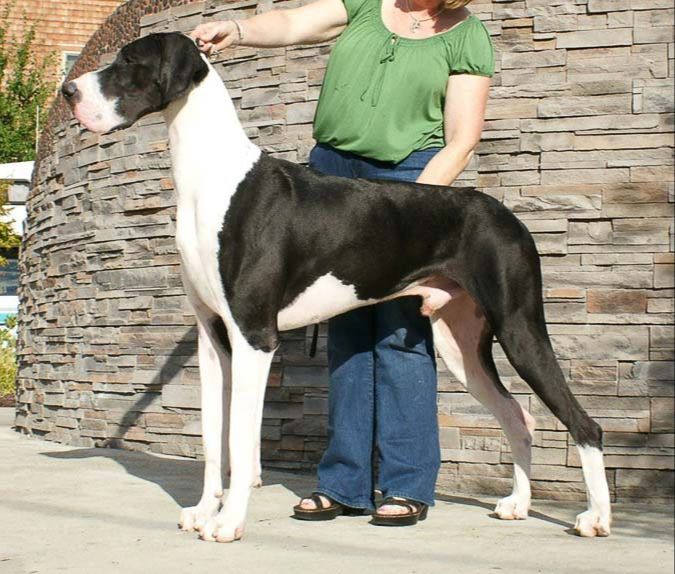Border Collie: Traits And Characteristics Of A Working Dog
The Border Collie is a dog breed that has been used for herding livestock, especially sheep, since the 1800s in Britain. While their exact origins are not totally clear, they likely descended from ancient landrace working collies in the border region between Scotland and England. The Border Collie became established as a recognized breed in the late 1800s and grew in popularity due to its remarkable intelligence and working abilities.
Originally bred by farmers and shepherds in border regions between England and Scotland, the Border Collie is still a highly valued working dog. They excel at herding livestock, especially sheep, on farms and ranches. Their instincts and intelligence make them ideal for managing movement and behavior of sheep and other livestock. Most Border Collies still reside on farms and ranches working as stock dogs. They have been selectively bred for generations to display traits and abilities that aid in herding.
Appearance
The Border Collie has a well-proportioned body that is slightly longer than tall [1]. Their coat can come in a variety of colors including black, red, chocolate, blue, lilac, gold, and brindle. Common coat patterns include merle, solid, bicolor, and tri-color. The hair is of medium length and texture. Their double-layered coats help protect them from rough terrain and cold weather [2].
The average Border Collie stands 18-22 inches at the shoulder and weighs 30-45 pounds. They have small ears that are semi-erect to erect. Their almond-shaped eyes convey an intense expression. Border Collies also have long, feathery tails that curl slightly when relaxed [1].
Temperament
The Border Collie is well known for being an extremely energetic and active breed. They need plenty of daily exercise and mental stimulation to be happy and avoid developing behavioral issues from boredom. According to DogTime, “His personality is characteristically alert, energetic, hardworking, and smart.” https://dogtime.com/dog-breeds/border-collie
Border Collies are also considered one of the most intelligent breeds. Their intelligence makes them highly trainable, but they need an experienced owner able to provide the structure, training, and activity they thrive on. Without proper training and leadership, their energy and smarts can lead to undesirable behaviors.
While energetic and driven when working, Border Collies tend to be reserved around strangers. They are loyal and affectionate with their families. Early socialization is important to prevent shyness or wariness of strangers. Their devotion to their family means they do not do well when left alone for long periods.
Herding Instincts
Border Collies are renowned for their strong natural herding abilities. They have been used extensively for generations to herd sheep, cattle, and other livestock across farms and ranches (https://www.almosthomehdr.org/about-3). This is rooted in the breed’s history, as the Border Collie was originally developed in the border region between England and Scotland to gather and control sheep. Herding instincts remain very strong in the breed today.
Even well-trained Border Collies who are not used for active herding work will often still display herding behaviors, nipping at people’s heels and circling to “round up” children or pets. Unique behaviors can stem from the Border Collie’s herding instincts. Even the most well-stimulated border collie, if its herding instinct is strong, can exhibit herding behaviors in the home (https://www.animalhearted.com/blogs/dogs/are-border-collies-good-with-chickens). Consistent, positive reinforcement helps in guiding a Border Collie’s herding instincts. A structured introduction and environment ensure a Border Collie can safely interact with other pets and livestock.
Training
Border collies are highly intelligent and eager to please, but they require patient, positive training methods. Their heritage as working dogs gives them an intense drive to work, so they excel at canine sports and competitions like agility, obedience, and flyball. With proper training, these energetic dogs can showcase their abilities while bonding with their owner.
Positive reinforcement is key for training border collies, as they are sensitive and respond better to rewards-based methods. Using treats, praise, and play as rewards allows you to shape behaviors in a collaborative, motivating way. Avoid harsh corrections or punishment, which can shut down this receptive breed. Patience is also critical, as border collies can be quick learners who then get bored with extensive repetition. Keep training sessions short, dynamic, and engaging.

Due to their high energy and need for stimulation, basic obedience is a must for border collies. Work on commands like sit, stay, come, down, and heel, using food rewards to capture and reinforce the desired behaviors. Practice in short bursts multiple times a day. Additionally, provide interactive toys and food puzzles for mental exercise when you can’t directly engage in training sessions.
For the best results training your energetic border collie, seek positive reinforcement classes for canine sports like agility, flyball, or herding. These structured activities provide an outlet for their instincts in a controlled setting. Border collies thrive when they have a job to do – training and competing gives them that outlet. With an intelligent, task-driven breed like the border collie, training is a lifelong process. But the time invested pays off with a well-mannered, engaged canine companion.
Source: https://usserviceanimals.org/blog/border-collie-training/
Exercise Needs
Border collies require lots of daily exercise and mental stimulation to stay happy and healthy. As working dogs originally bred for herding livestock, they have very high energy levels and stamina. Without adequate exercise, border collies can become anxious or develop destructive behaviors [1].
Most border collies need 60-90 minutes of exercise per day at a minimum. This exercise should include activities that engage both their bodies and minds, such as running, hiking, playing fetch, agility training, or advanced obedience work. Border collie puppies under 12 months old will require somewhat less exercise as their joints are still developing, but they still need daily activity and play. Regular walks are generally not enough to meet a border collie’s needs.
Since border collies have so much energy, they can become bored and frustrated if they do not get sufficient outlets for exercise and mental stimulation. An under-exercised border collie is prone to developing nuisance behaviors like excessive barking, digging, chewing, or hyperactivity [2]. Providing adequate exercise is key to having a well-behaved and content border collie.
Health
The Border Collie is prone to certain genetic health conditions. One of the most common is progressive retinal atrophy (PRA), an eye disorder that eventually causes blindness. According to one source, about 4% of Border Collies are affected with this condition (source). Another common issue is hip dysplasia, which is an inherited malformation of the hip socket that can lead to osteoarthritis. Responsible breeders will screen their dogs for these issues before breeding.
The average lifespan for a Border Collie is 12-15 years. With proper diet, exercise, and veterinary care, many Border Collies live to 14 years or older. Providing routine wellness exams, vaccinations, dental care, parasite prevention, and prompt treatment when illnesses arise can help a Border Collie live a long, healthy life.
Grooming
Border collies require weekly brushing with a slicker brush or undercoat rake to remove dead hair and prevent matting (Border Collie Grooming: Bathing, Shedding, and Why They …)”. They shed heavily twice a year during shedding seasons in the spring and fall when they blow their coats. Frequent brushing can help manage loose hair during this time. Some groomers recommend a “Border Collie blow out” grooming session before the heavy shedding seasons to help remove excess undercoat hair (How to Groom a Border Collie? 5 Border Collie Grooming Tips).
In addition to weekly brushing, occasional bathing every 4-6 weeks can help keep the coat clean and reduce shedding. Use a mild dog shampoo and thoroughly rinse out all soap residue. Avoid over-bathing, as this can dry out the skin and coat. Pay extra attention to cleaning the feathery fur on the legs, belly, and behind.
Living Conditions
Border Collies are energetic working dogs that require adequate space to run and play. They do best in environments that provide room to run, such as a farm, ranch or home with a very large, fenced yard. The ideal living conditions allow the Border Collie to run freely and expend their energy.
That said, Border Collies can adapt to apartment living, provided their exercise needs are met through long daily walks, hikes, or trips to the dog park. Apartment dwellers will need to commit to providing their Border Collie with at least 60-90 minutes of vigorous exercise per day. Mental stimulation through training activities is also important. With sufficient outlets for exercise and mental stimulation, the intelligent Border Collie can thrive in any home.
As per this source, Border Collies are active dogs that need space, but can do well in apartments if exercised properly.
Conclusion
The Border Collie is an energetic, intelligent, and driven working dog breed. They have strong herding instincts and do best with a job to do and lots of daily exercise and mental stimulation. Border Collies are extremely smart and trainable but need an experienced owner able to provide structure, consistency, and engagement. Their distinctive appearance includes a medium-length double coat, pointed ears, and an intense gaze. Border Collies can thrive in active homes of any size but require daily physical and mental exercise. Before adopting a Border Collie, ensure you can meet their high exercise and training needs. With proper care and training, these agile herding dogs make wonderful family companions.
When deciding if a Border Collie is the right dog for you, consider your lifestyle and experience level. Border Collies need extensive daily exercise and mental stimulation, so an active household is ideal. They are better suited to experienced owners able to provide structured training and set clear boundaries. Make sure you have time to exercise, train, and interact with a Border Collie each day. Their herding instincts can lead to chasing behaviors, so supervision around children or other pets is essential. Border Collies do best when they have a job to do like dog sports, advanced training, or herding work. If you can provide the physical and mental stimulation this breed needs, a Border Collie makes a loyal and clever canine companion.





